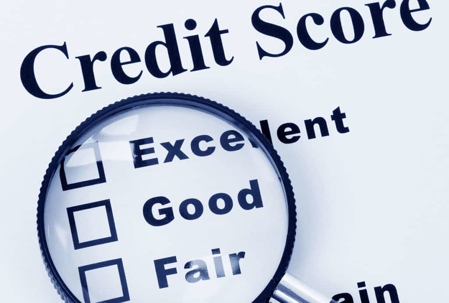Rebuilding your credit can be a difficult task. Your credit score probably didn’t tank overnight – it took months or years of carrying high balances, late payments, or bills in collections to create your current credit score. Some people think that filing bankruptcy can be a nail in the coffin to your credit score. This is not necessarily the case.
When you file bankruptcy with our office, we provide you with your up-to-date credit report from all three credit bureaus. This report includes your current credit score along with a projected credit score for 12 months after your bankruptcy filing. Most of our clients find that their credit score actually improves after filing bankruptcy. Filing bankruptcy puts a stop to late payments and collections. While those old accounts can still linger on your credit report for 7 – 10 years, your creditors should no longer report late payments or high balances to your credit report.
How to Improve Your Credit Score After Bankruptcy
Clean Up Your Credit Report
After you receive your bankruptcy discharge, you’ll want to pull another copy of your credit report. You’re entitled to one free report from all three agencies once a year. Contact the credit bureau to tell them if any debts are still being reported that should now be marked as discharged in your bankruptcy.
Re-establish Credit
You are probably nervous about taking out more credit after your bankruptcy discharge since excessive debt led you to file bankruptcy in the first place. We certainly don’t want you to get back into that same situation by taking out multiple credit cards. You may want to start with just one credit card so you can build positive habits with using a card and paying down the balance each month.
One simple and smart way to rebuild credit is to use a credit card. Opening a credit card account and using the card within your means is a simple method to regain control over your use of credit and establish positive payment history that is reported to the credit bureau. Next Advisor, an independent research agency, recommends specific credit cards that will help you rebuild your credit. These cards all report to the credit bureaus so you can establish a good payment history on your credit report.
A great way to ease back into using a credit card is to open a secured credit card. This requires you to put down a deposit for a certain amount of money – say $250 – on your account. Then, you have a line of credit up to $250. If you fail to make your payments, the credit card company can take your deposit to pay what you owe, but if you make your payments on time, you won’t lose that deposit. Secured credit cards are great for those who have had poor or no credit in the past and may not qualify for an unsecured credit card. Building a positive payment history on a secured credit card may eventually help you to qualify for an unsecured credit card.
4 Things to Do When Using a Credit Card to Improve Your Credit Score
Always Make Your Payments on Time
The point is to help your credit, not hurt it. If you can’t make your payments on time, refrain from using the card.
Use the Card on a Regular Basis
Use your card to make small purchases like groceries or gas, then set aside that money to pay your credit card bill each month. Having an active card with on-time payments is good for rebuilding your credit score.
Don’t Charge More Than You Can Afford
Always make sure you have the cash to back up your charges when it comes time to pay your credit card bill. Many of these credit cards have pretty high interest rates. If you get behind, the interest can accumulate quickly.
Make Sure the Credit Bureaus Know About Your Good Credit Card Behavior
When you apply for a new credit card, make sure that the credit card company reports to the three credit bureaus. One of the primary reasons for taking out a credit card is to rebuild your credit, which can’t happen unless the credit card company tells the credit bureaus about your on-time payments.
Here is a list of the top three credit cards that can help you rebuild credit after bankruptcy, according to Next Advisor. See how they compare and decide how you want to continue on your journey to financial recovery.

Middle Tennessee’s Top Bankruptcy Attorneys
When navigating the bankruptcy process, it is invaluable to enlist the help of an attorney you can trust. Regardless of your financial situation or employment status, we will guide you through the bankruptcy filing process with confidence.
Flexer Law has been serving the legal needs of Middle Tennessee residents since 1981. Our experienced bankruptcy attorneys will work diligently on your behalf to provide the best financial outcome for you.
We have three office locations throughout Middle Tennessee to accommodate your legal needs. Contact us for a free consultation, either in person or virtually, and we will get to work on finding the best solution for getting your financial life back on track.
Flexer Law Office Locations
- Nashville, TN
- Murfreesboro, TN
- Columbia, TN
Source: Next Advisor, December 10, 2014: http://www.nextadvisor.com/credit_cards/rebuild_credit.php
Disclaimer: This is not legal advice. The information contained herein does not indicate an attorney-client relationship. We are a federally designated debt relief agency. We help people file for bankruptcy relief under the bankruptcy code.

